Savoring the Chaos: Issue No. 10

Market Day in L’Isle-sur-la-Sorgue
The We were staying in Avignon, which already felt like some sort of movie set, all medieval walls and café tables spilling into the street, when Denise reminded me of something. Years earlier, back in our old life in California, we’d watched James Martin’s French Adventure. He did an episode in this little Provençal town called L’Isle-sur-la-Sorgue, where the Sunday market wasn’t just stalls lined up on the cobblestones, but vendors actually floating down the river in little boats, selling vegetables, cheese, and wine right off the water. It only happens once a year, but that image stuck with us.
Denise especially lit up during that French Adventure episode. James Martin had wandered into an antique shop in this little town, poked around like a kid in a candy store, L’Isle-sur-la-Sorgue is known for the number and quality of antique stores there. I remember D turning to me on the couch in California, eyes narrowed in that way that means she’s dead serious, and saying, “That’s going to be us someday.”
She didn’t have a vision board, no pins, no magazine clippings taped above a desk. She just had this image seared in her brain: a sunny café terrace in L’Isle-sur-la-Sorgue, glass in hand, antiques waiting around the corner. Weekly market plus antique heaven? There was no way in hell we weren’t eventually making a pilgrimage.
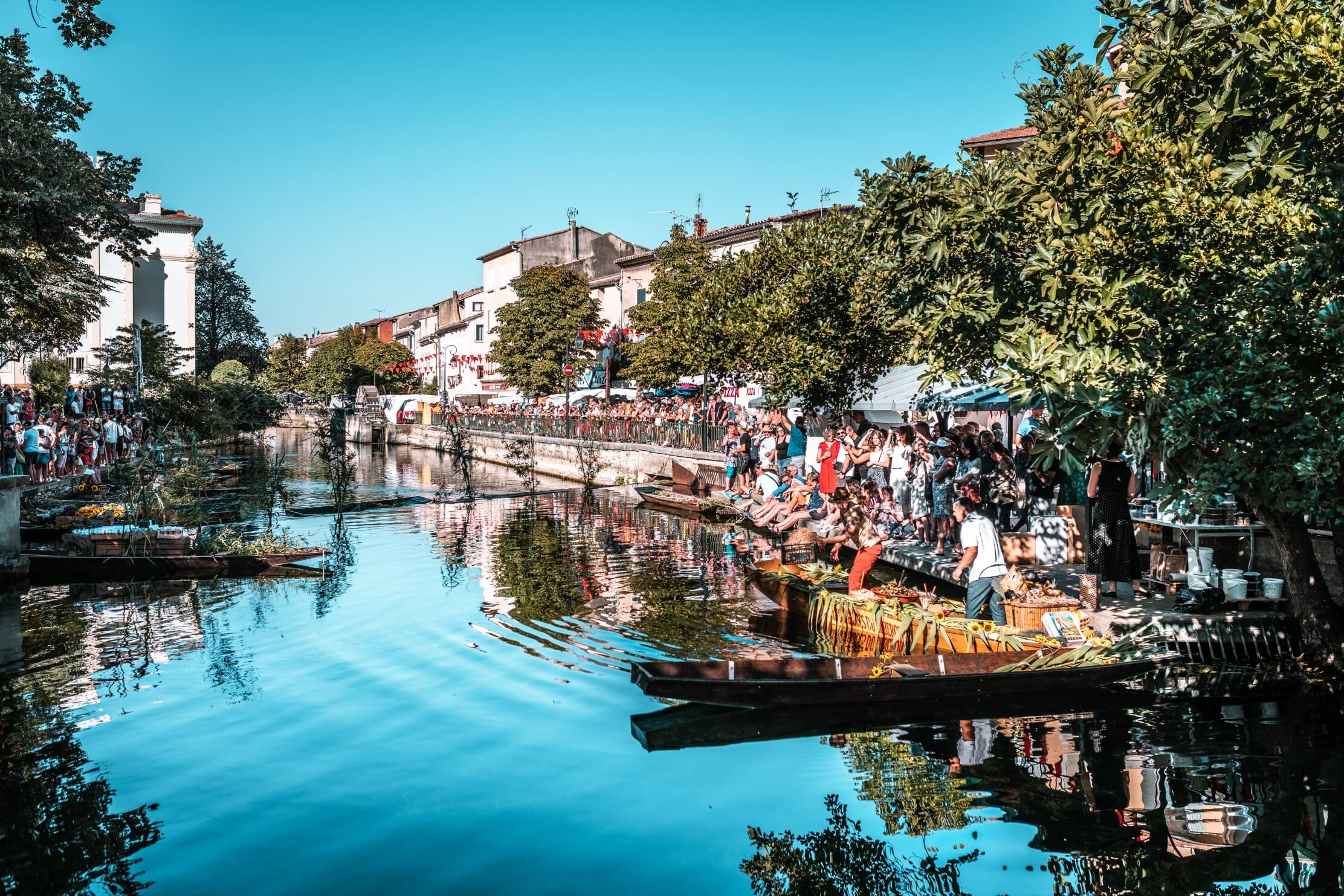
Here’s the thing nobody tells you: market day in L’Isle-sur-la-Sorgue is not a casual stroll. It’s a full-scale event. The town itself, a dreamy little island laced with canals, stone bridges, and mossy waterwheels, becomes something else entirely when Sunday arrives. By 8 a.m., vans are unloading mountains of cheese wheels, crates of heirloom tomatoes that smell like sunlight, pyramids of lavender soap, bolts of linen, baskets of walnuts, and towers of antique books that look like they belong in a library from Beauty and the Beast.
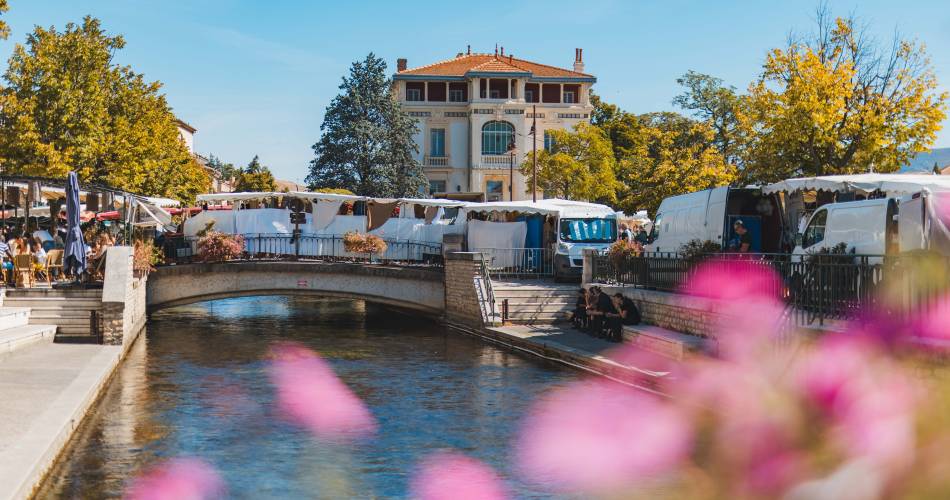
And then the people come. First, a trickle of locals with baskets slung over their arms. Then the Parisians, then the Dutch cyclists, then the Americans who can’t quite believe this isn’t a movie set. By 10 a.m., it’s shoulder-to-shoulder. You can feel the tide of humanity slowly carrying you past olive and cheese stalls and vintage postcards. Everyone’s eyes are darting around like they’re on a treasure hunt. Which, in a way, they are.
Because this isn’t just any marché. This is the brocante. The flea market of flea markets. The place where someone inevitably finds a zinc watering can they’ll lug home to Seattle, or a stack of mismatched Limoges plates destined to impress their dinner guests. It’s on a thousand Pinterest boards. It’s on every “dreaming of France” vision board. And for good reason, L’Isle-sur-la-Sorgue is the kind of town that makes you believe you’re living inside a travel magazine spread.
Fast forward to that Sunday morning. We pulled into town, me sweating over parking logistics, Denise already floating on her French-fantasy cloud, and Sully bouncing along like he’d been promised unlimited baguette crusts. After circling the outskirts with the other lost tourists, I discovered what would become my secret L’Isle-sur-la-Sorgue card: a little grocery store parking lot smack in the center of town, four euros for the day. Insider tip, that’s where you want to be. Forget the dusty field half a mile out; spend the four bucks, save yourself the blisters, and walk straight into the good stuff.
We were early, earlier than most of the tourists. Vendors were still fussing with their stalls, arranging pyramids of olives, stacking cheeses into glossy sculptures, tying lavender bundles so the whole street smelled like summer. Across the river from the grocery store lot it looked daunting, a sea of tents, furniture already spilling into the lanes, but for now, the big crowds hadn’t yet arrived.
So we took a walk. Sully trotted happily ahead, nose down in every doorway, while D and I wound our way through the quieter backstreets. And then she stopped dead.
There it was. Café de France. That Belle Époque façade she’d carried around in her head since seeing it in magazines and French decorating sites for years. It didn’t register with me. Sure, it was another cool-looking café on another charming French square, but her face gave it away. She lit up like she’d just stumbled into a dream made real. This place meant something to her.
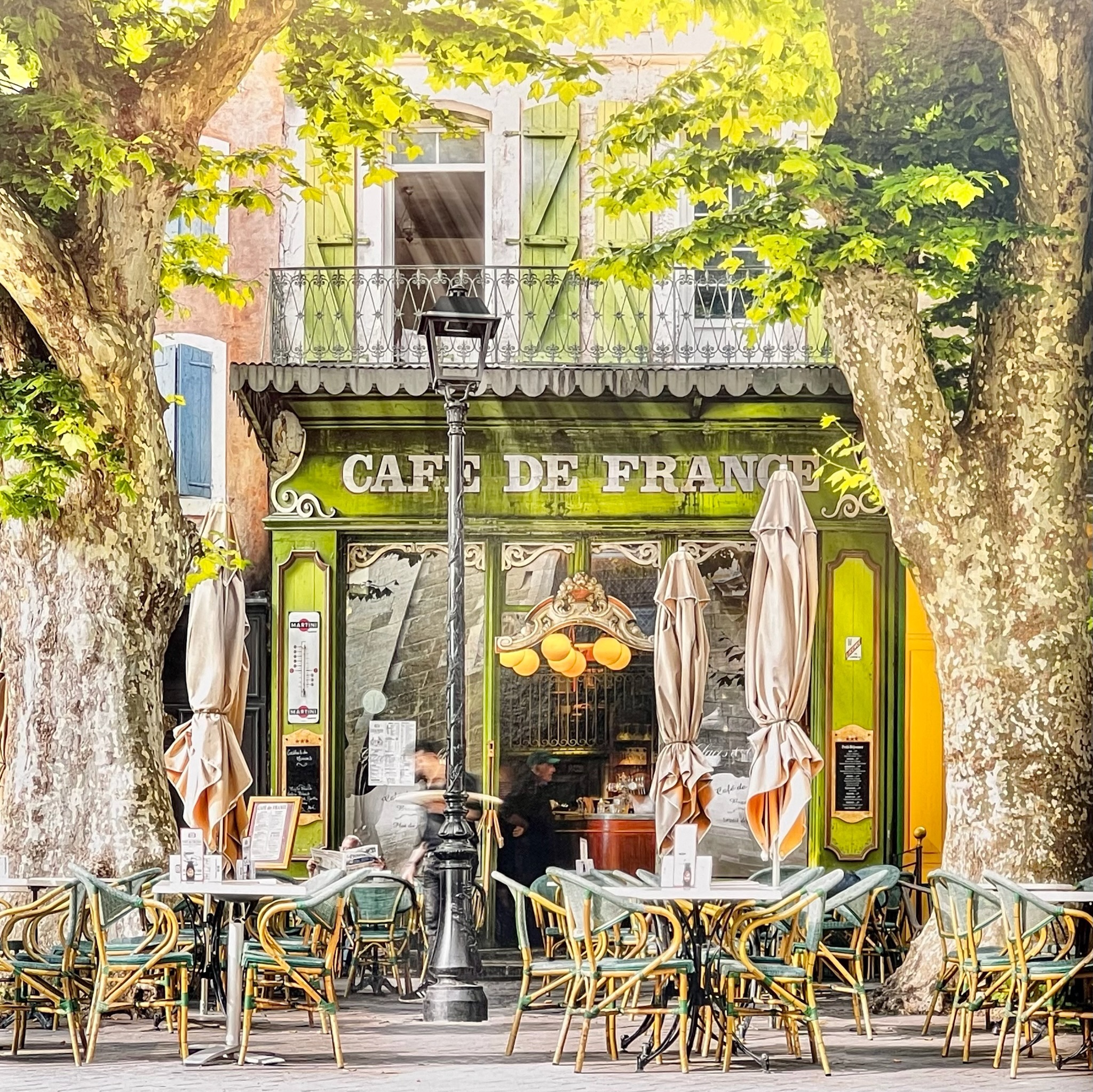
She grabbed my arm and said "I know this place. I've seen pictures of it so many times. I had no idea it was here."
I remember thinking, this is exactly why we came. Not for the antiques or the olives or the flea-market chaos, but for this moment right here. To see D frozen, staring at a café she’d only dreamed of and knowing she was finally, undeniably here.
We grabbed a couple of croissants, her a café au lait, me a double espresso. Yep… We sat at a table across the street under the plane trees. Me in heaven with my still-warm croissant, D sitting with a satisfying smile of realizing a dream.
Here’s the kicker: Denise wasn’t the only one having a déjà vu moment. I’d been watching James Martin’s French Adventure too. I loved the way he cooked. And I loved the way he gave it back to the people who wrote into the show saying he didn't wash his hands enough.
It was all glossy shots of him traveling through all parts of the country, cooking in amazing settings, lots of butter. But then I remembered James Martin’s own hero, another TV chef, one of the originators of travel cooking shows from back in the 80s: Keith Floyd.
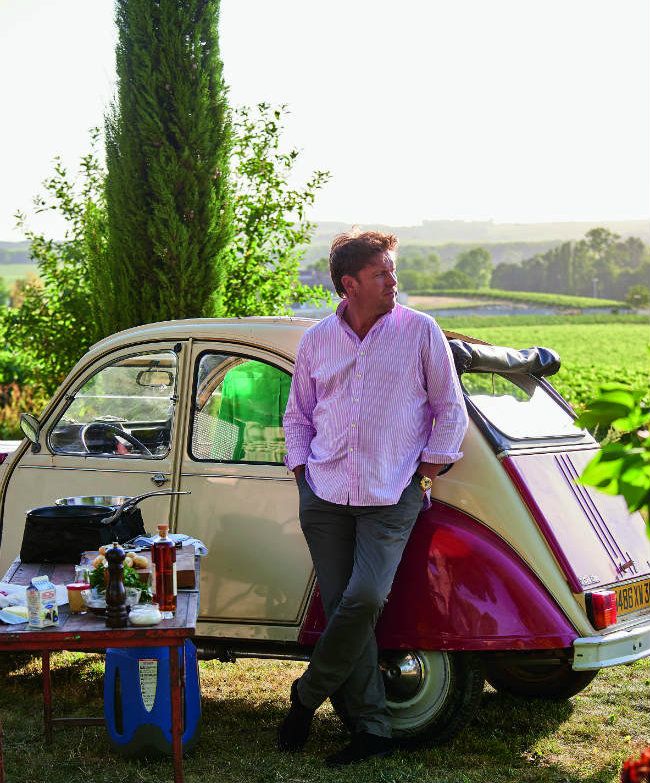
Floyd never cared what people thought, and half the time I’m not sure he remembered he was being filmed. The man was a culinary poet one minute, a drunk uncle the next. He’d stand in the bow of a boat floating down the Sorgue, pan sizzling on a camp stove, sloshing wine everywhere while his wine nerd sidekick swirled a glass like he was auditioning for a brass section — cheeks puffed out, making noises that sounded vaguely obscene. It was half cooking show, half pub crawl, and entirely brilliant.
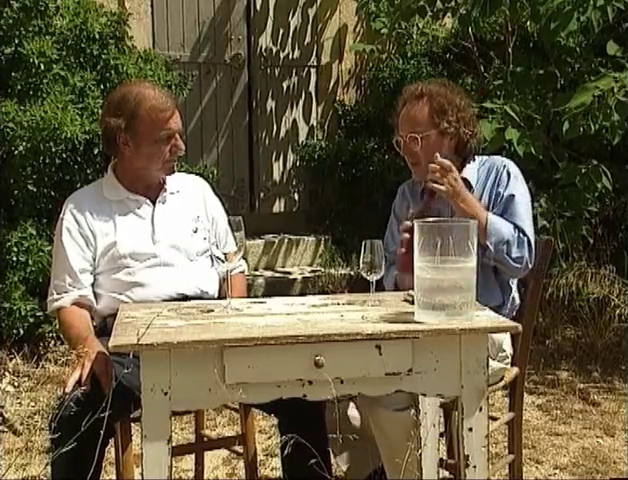
And here we were, three decades later, sitting a stone’s throw from where Floyd had his restaurant. Denise was hypnotized by the moment. Sully was gathering fans like a minor celebrity. It hit me: this was the real “French adventure” — not the TV version with the perfect lighting and choreographed markets, but the messy, unpredictable, slightly ridiculous experience of actually being here.
We just sat in happy silence, until four American women appeared; middle-aged and moneyed, looking like they’d liberated half the boutiques of Provence. Their voices carried across the square, along with clouds of perfume and the unmistakable energy of women on holiday without anyone to tell them no. Sully wagged his tail like they’d just arrived to see him. They had every right to enjoy the town their way, but still... Maybe I’d just been in France too long.
We decided to head back to the main part of the market. All along the way through the small winding streets, there were vendors distracting our path.
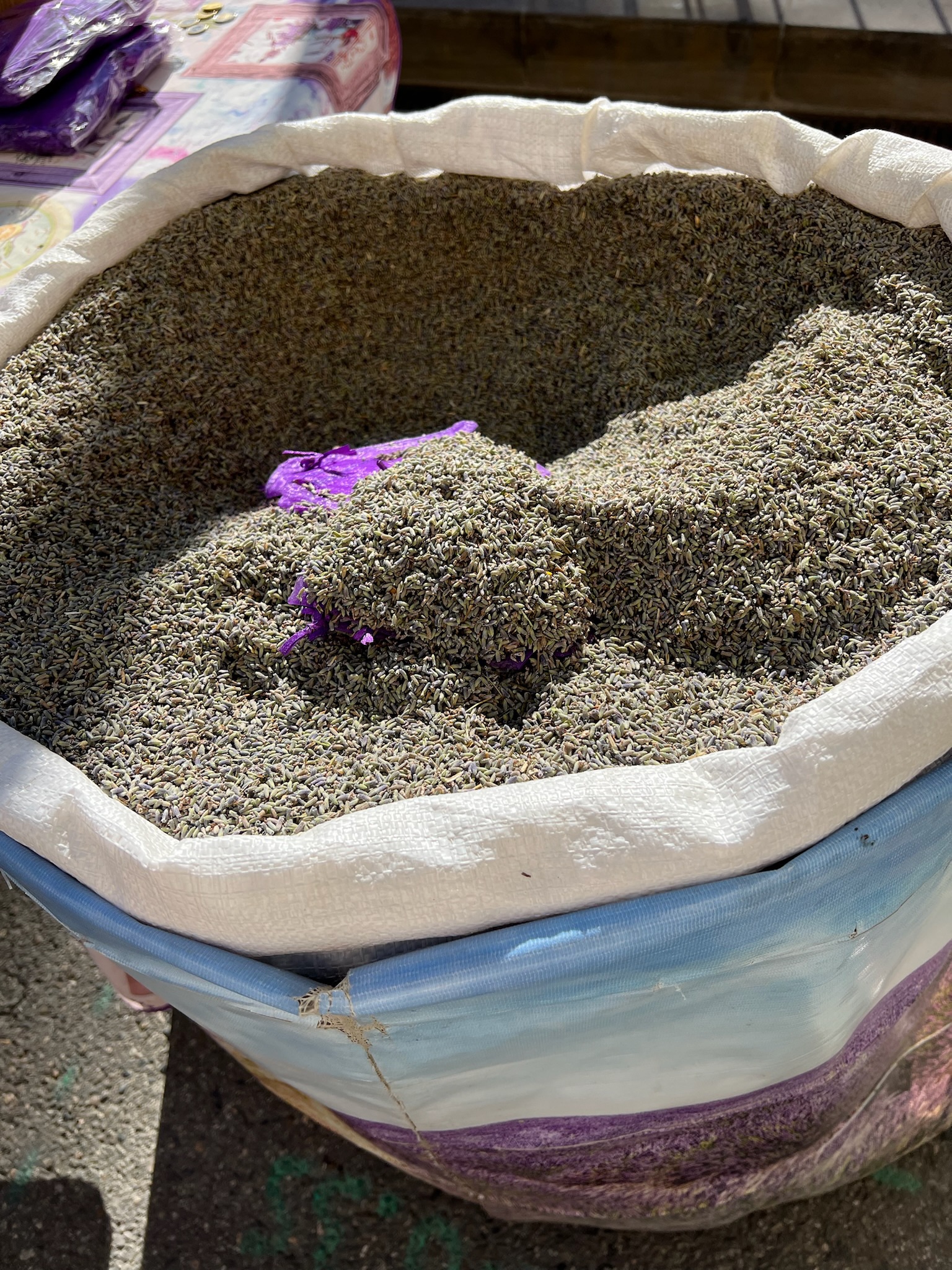
Pastels and paintings, bric-a-brac and flowing blouses and skirts that only Provence can share. Then we got back to the river.
Everyone had arrived.
It was a little too much for me and Sully. A mass of people smushed together that gave him no line of sight. This was not for me either. But this was D’s all-star game. The big leagues of French markets. She needed to savor this without me tagging along. She looked at me and knew.
Like we normally do, we decided to split up. Denise could go do her thing for as long as she wanted. Me and Sully would wander around for a bit, then probably grab a beer somewhere and wait.
He and I wandered through the town and saw parts that most visitors rarely see. But here’s what makes L’Isle-sur-la-Sorgue magical: step a few blocks away from the river and the tourist crush disappears. Suddenly you’re wandering quiet backstreets where shutters are flaking in the sun and cats stretch in the window boxes. This is the France you come for. Not curated, not polished, but lived-in.
“You can plan until you’re blue in the face, but the magic is never in the plan. ”
But it was pretty warm out. Early September in Provence is still clinging to summer. So we headed back to the other side of the river where I had tagged some outdoor seating where people were already enjoying their Sunday morning beer. It was my turn now. By the time we’d made it over to place with a table adjacent to the street, Sully had already collapsed under a café table, panting with the drama of a soldier returning from war. I ordered a beer.
It was peaceful even though there was so much activity. The sun that had been roasting us in town was finally blocked by the café’s facade, leaving us in a patch of cool shade instead of the full Provencal blaze.
Sitting there, I could imagine Denise spotting a stall filled with linens and instantly jumping into negotiation mode, haggling like she was drafting the Treaty of Versailles.
She saw us from across the street a little bit later. Smiling ear to ear, she said, “I'm almost done. I just want to run over to the little stand over there. Be back in 10 minutes.” Uh huh…
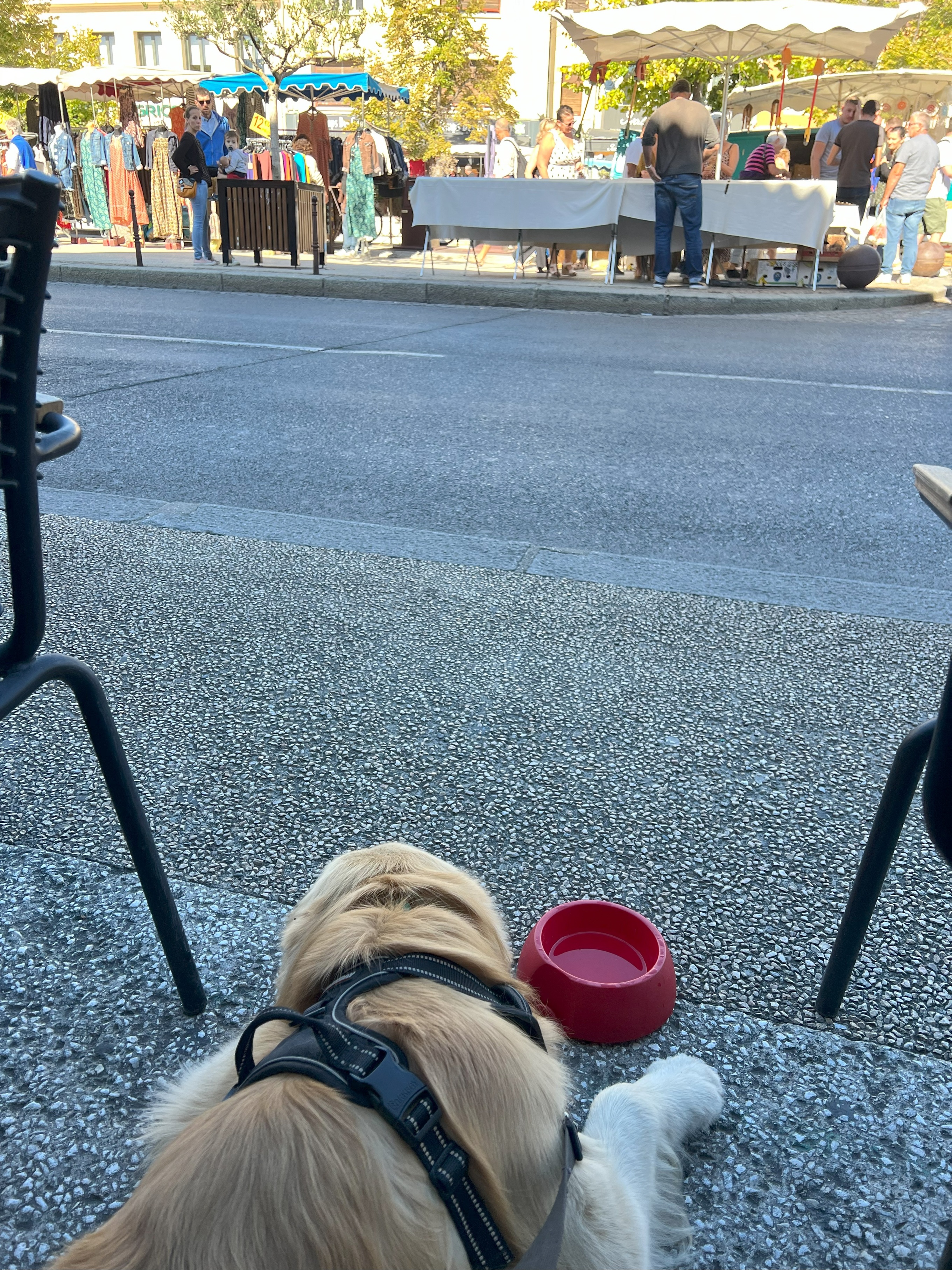
A half hour later she was back. The smile hadn’t left her face, but her market cart looked full. Mission accomplished. Heading back to the car she gushed about what a good time she’d had wandering through the market. We stopped inside the grocery store of parking-hack fame and grabbed some goodies to nosh on when we got back to Avignon. Bonus sauce.
Here’s the point, if there is one (and you know me, I’m not big on neat little bows): you don’t have to engineer every detail of a life in France. You can. You can spreadsheet yourself into oblivion. Or you can admit that sometimes the best parts, the ones that stick, the ones that change you, arrive sideways.
James Martin will show you how to perfectly reduce a sauce by half. Keith Floyd will spill his wine into it, laugh, and still somehow make it delicious. Both approaches get you fed. But only one feels like an adventure.
For us, moving here wasn’t about escaping America or chasing an Instagram fantasy of baguettes in a bike basket. It was about giving ourselves a shot at stumbling into moments like this: Denise seeing a dream café she didn’t even know she’d find, me nursing a beer before noon, Sully splooging happily on ancient cobblestones, and a chorus of Provencal vendors insisting we really must try just one more olive.
That’s what moving to France has taught me. You can plan until you’re blue in the face, but the magic is never in the plan. The magic sneaks up on you in the middle of a Sunday market, in a sleepy backstreet, in a chance conversation with a German couple who can’t quite believe you actually did it.
It’s messy. It’s inconvenient. It’s wonderful.
It’s being Frenched.
Tips for L’Isle-sur-la-Sorgue
Here’s a practical note for anyone tempted by this scene: do not show up on market day without a plan.
Every single parking lot outside town will be full by 9 a.m. I know this because a year later, we arrived fashionably late, did the slow-motion “circle of shame” around full lots, and once again ended up parking in the only secret spot worth knowing: the grocery store lot right in the middle of town. We got lucky again. No one tells you that in the glossy guides, but that’s the kind of intel that keeps you from having to hike a sweaty mile while carrying a sack of tomatoes you’ll never finish.
Also, if you’re dreaming of a long, lazy Sunday lunch at one of the canal-side restaurants? Call ahead. Book a table. Reserve three, honestly, and cancel the ones you don’t use. Otherwise, enjoy your €14 pizza and a Heineken that tastes faintly of bleach. Which, to be fair, is also its own kind of French adventure.
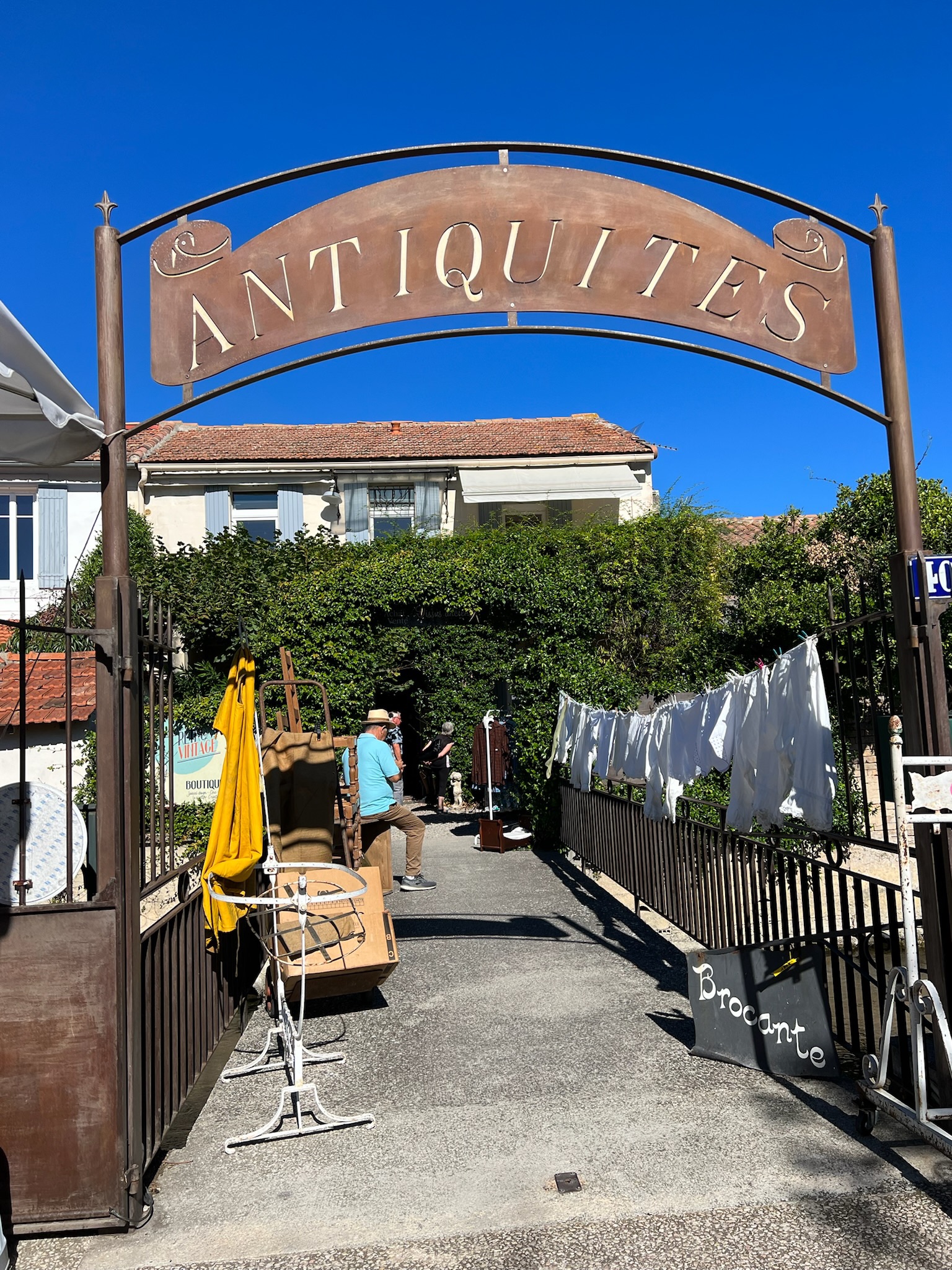
Meanwhile, the antiques scene is its own world. Whole warehouses are filled with centuries of French furniture, copper pots, faded maps, and chandeliers that once hung in some château. You don’t browse L’Isle-sur-la-Sorgue, you spelunk it. And just when you think you’ve seen everything, you stumble across a courtyard where someone is selling an entire carousel horse.
Until next time.
Thanks for subscribing and thanks for reading.
Paul
P.S. Yes, I’m shamelessly plugging my book again. Get Frenched is part guide, part comedy of errors, and all true. It’s at WeGotFrenched.com.

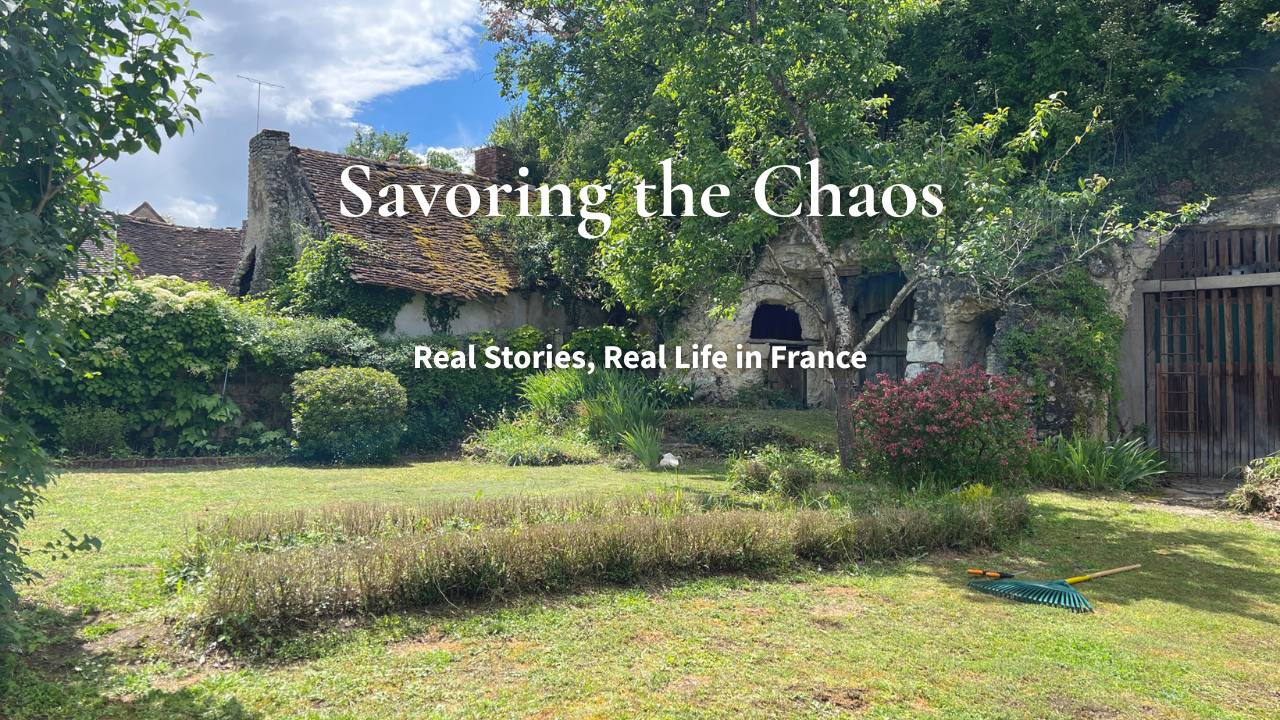
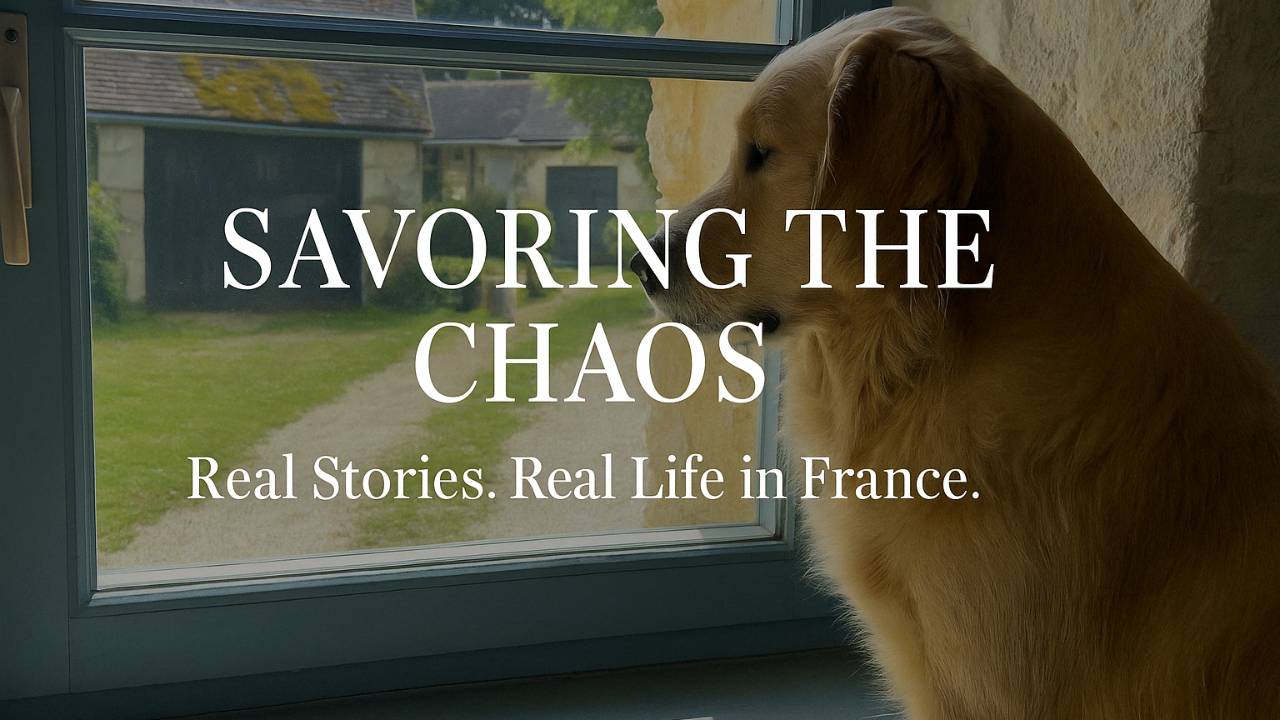

Responses